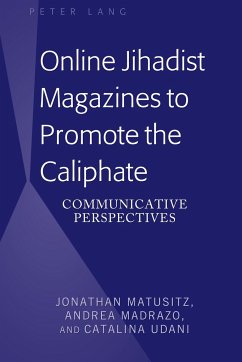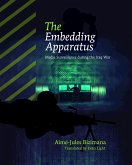This book examines online jihadist magazines, Inspire, Dabiq, Rumiyah, and Gaidi Mtaani, published by three terrorist organizations-Al-Qaeda, ISIS, and Al-Shabaab-and their aggressive promotion of the Caliphate, an Islamic system of world government that seeks to create a new world order ruled by sharia. These magazines have played an important role in the diffusion of Islamist ideas such as jihad and sharia (Islamic law).
Divided into ten chapters, this book extends existing research by offering fresh insights on the communicative strategies, radicalization processes, and recruitment methods used by jihadist organizations as well as their effects on readers. In particular, this book includes (1) the application of communication theories and models to both global jihad and online jihadist propaganda; (2) meticulous descriptions of the four online jihadist magazines in question (in terms of their missions, stylistic formats, and tactics), including excerpts from each magazine; (3) a thorough explanation of the jihadisphere (e.g., as a vehicle for extreme propaganda and an overarching "training manual" for jihad); (4) the procedures and complexities of online Islamic radicalization; and (5) strategies to combat online jihadist magazines (e.g., by developing counter-narratives and online counter-radicalization magazines).
Divided into ten chapters, this book extends existing research by offering fresh insights on the communicative strategies, radicalization processes, and recruitment methods used by jihadist organizations as well as their effects on readers. In particular, this book includes (1) the application of communication theories and models to both global jihad and online jihadist propaganda; (2) meticulous descriptions of the four online jihadist magazines in question (in terms of their missions, stylistic formats, and tactics), including excerpts from each magazine; (3) a thorough explanation of the jihadisphere (e.g., as a vehicle for extreme propaganda and an overarching "training manual" for jihad); (4) the procedures and complexities of online Islamic radicalization; and (5) strategies to combat online jihadist magazines (e.g., by developing counter-narratives and online counter-radicalization magazines).








